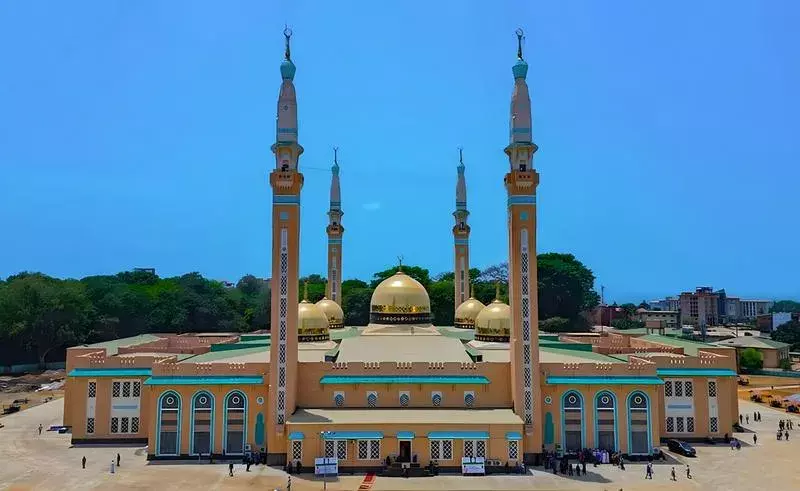Grand Mosque of Conakry

- The Grand Mosque of Conakry is one of the largest mosques in West Africa and a significant religious and architectural landmark in Guinea. Commissioned by President Ahmed Sékou Touré with support from King Fahd of Saudi Arabia, the mosque was inaugurated in 1982 and has since served as a central place of worship for Muslims in Guinea. Located in the heart of Conakry, near the Donka Hospital and the Palais du Peuple, this grand structure is a symbol of Guinea’s Islamic heritage and its historical ties to the Muslim world.
- The mosque’s architecture is imposing and elegant, with a massive prayer hall capable of accommodating up to 12,500 worshippers inside and an additional 12,500 in the surrounding courtyard. It features four towering minarets, each representing one of the four regions of Guinea, and a large central dome that dominates the skyline of Conakry. The interior is adorned with intricate Islamic calligraphy, beautiful chandeliers, and traditional West African design elements, reflecting both Islamic and local artistic influences. The mosque is particularly lively during Friday prayers and Islamic holidays, drawing thousands of worshippers from across the city.
- Within the mosque complex is the Mausoleum of National Heroes, where prominent Guinean figures, including Ahmed Sékou Touré and Samori Touré (a key figure in Guinea’s resistance against French colonial rule), are buried. This sacred site is a place of reflection and remembrance, attracting both pilgrims and history enthusiasts who wish to pay their respects to Guinea’s national leaders. The mosque’s surrounding gardens and courtyards provide a peaceful setting for contemplation and community gatherings.
- The Grand Mosque of Conakry is more than just a place of worship—it is a center for religious education and social unity. It houses an Islamic school and serves as a venue for religious discussions, Quranic teachings, and community events. Whether you are a worshipper, a history buff, or an admirer of Islamic architecture, visiting this mosque offers a profound insight into Guinea’s religious and cultural identity, making it one of the most important landmarks in Conakry.
